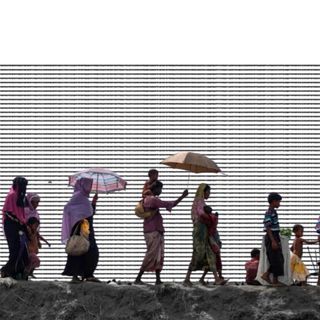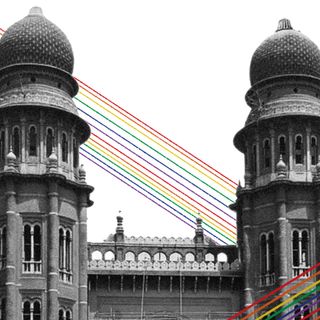Cow slaughter is the most common reason to invoke the National Security Act, 1980 (NSA) in the state of Uttar Pradesh, an Indian Express investigation has revealed.
The NSA allows ‘preventative detentions,’ enabling state authorities to detain the accused without a formal trial. The current findings show that most detentions in U.P. under this law are made without sufficient evidence and were later quashed by the court.
The Indian Expressfound that out of the 120 petitions filed under the NSA, cow slaughter accounted for more than a third of cases that reached the Allahabad High Court between January 2018 and December 2020. The analysis showed all individuals accused for cow slaughter under the NSA belonged to “the minority community.”
In many cases, authorities cited that the slaughtering of the animal had led to disruptions in public order and had created an atmosphere of fear.
Interestingly, in more than 70% of the cases linked to cow slaughter, the High Court came to the rescue of the accused — quashing the detention orders passed by magistrates and releasing the accused from custody. The court ended up dismissing 94 out of the 120 orders related to NSA petitions overall.
The investigation found patterns of similarities upon reviewing the orders passed by magistrates: there was a verbatim likeness in the reasons cited by the officials for detaining people. Phrases like “atmosphere of fear and terror has engulfed the whole vicinity,” “people started running helter-skelter and the situation has become tense,” and “women, in particular, became reluctant to go out of their house and do their routine work,” figured in multiple orders between 2018 and 2020; reflecting the erratic usage of the law.
Related on The Swaddle:
UP Police Investigation of ‘Love Jihad’ Concludes What We Already Know — It Doesn’t Exist
The High Court, while passing a ruling in at least 10 detention petitions, chided the magistrates for the “non-application of [their] mind,” and noted the accused had been denied the opportunity to make a case for themselves. In some cases, the High Court said, there were no grounds at all to invoke the NSA, effectively calling out the state administration’s indiscriminate use of the NSA.
In 2018, an independent body, the South Asian Human Rights Documentation, reviewed habeas corpus petitions filed under NSA. It “showed that the police often rely on the NSA when they are unwilling or unable to make an appropriate criminal case under the strictures of constitutional and statutory law,” Ravi Nair wrote in The Wire. The present findings echo the observations of a report from 2020, which too made similar observations: the U.P. administration was charging people under the NSA to detain those linked to cow slaughter cases.
Both reports highlight the ongoing discourse around the rise of cow protection in U.P., as well as in India. Many Hindus consider cows sacred owing to religious traditions, and cow slaughter is forbidden in most states. A 2019 report by the Human Rights Watch noted the rise of cow-protection groups in India, many of which claim to be affiliated with extreme right Hindu groups and/or the Bharatiya Janata Party (BJP), and attack minorities for threatening the piety of cows.
In light of rising vigilante lynching cases, the Supreme Court in 2018 decried the attacks by these groups, noting that “it is imperative for them to remember that they are subservient to the law and cannot be guided by notions or emotions or sentiments or, for that matter, faith.”
Against this backdrop, the Indian Express’s findings underline two concerning trends: using legal interventions to advance an ideological agenda and the dirge of preventative detention, under the name of NSA, which violates constitutional rights.




